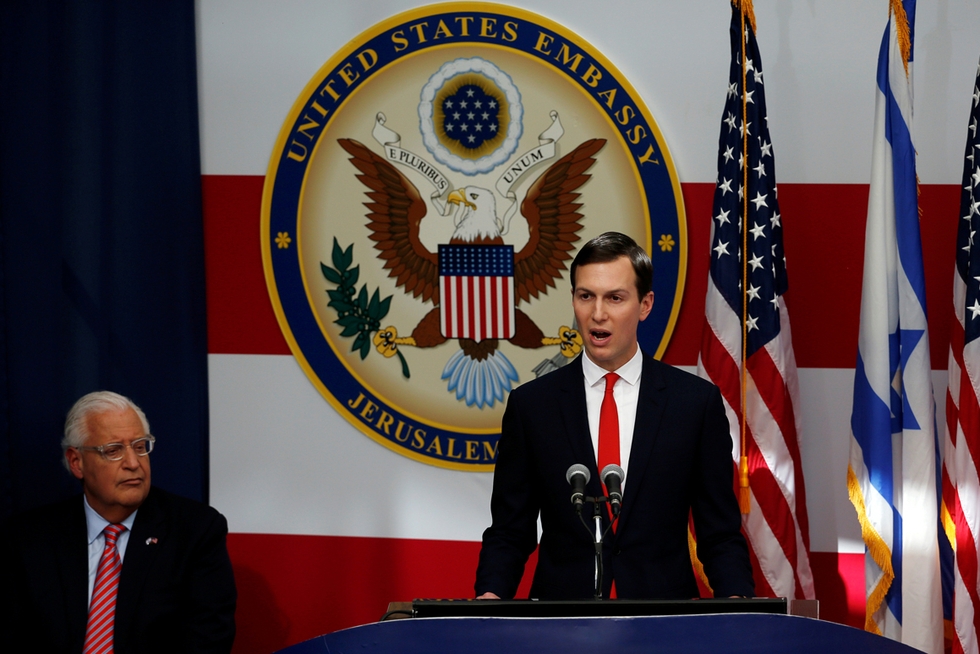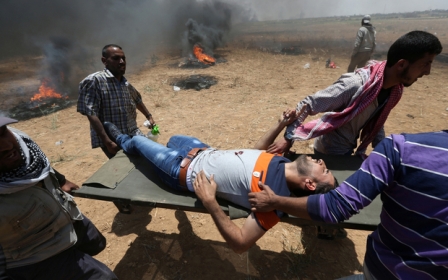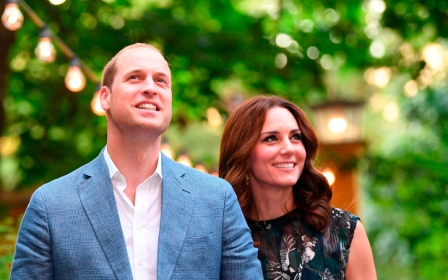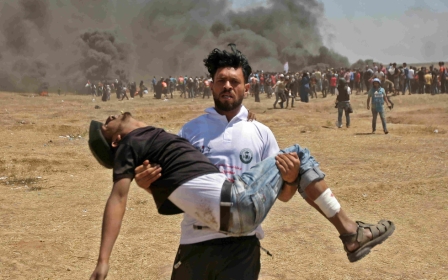Palestine recalls its US envoy over embassy move to Jerusalem

Palestinian president Mahmoud Abbas withdrew his top representative to the United States on Tuesday, the foreign ministry announced, a day after the US moved its Israeli embassy to Jerusalem.
Husam Zomlot, the head of the Palestine Liberation Organisation's office in Washington, would return to the Palestinian territories Wednesday, the statement said.
It did not say how long Zomlot, the most senior Palestinian official in Washington, would be withdrawn for.
The Palestinians reacted furiously to President Donald Trump's December announcement recognising Jerusalem as Israel's capital and moving his country's embassy there from Tel Aviv.
They consider the eastern part of Jerusalem their capital and countries have long kept their embassies in Tel Aviv, saying the future of the holy city was an issue to be negotiated between the Israelis and Palestinians.
The date of Monday's embassy opening also angered Palestinians, coming the day before they commemorate their mass displacement in the 1948 war surrounding the creation of Israel.
The Israeli government welcomed the embassy move, which coincided with the anniversary of the country's independence.
The event was overshadowed by mass protests along the Gaza border in which Israeli fire killed 62 Palestinians.
Palestine's foreign ministry statement did not refer to the deaths, only the embassy move.
Senior UN officials have condemned the killings as an “outrageous human rights violation” and said it appeared that protesters approaching the fence were liable to be shot and killed by Israeli forces without warning.
“Lethal force may only be used as a measure of last, not first, resort,” said Rupert Colville, a spokesman for the UN high commissioner for human rights, on Tuesday
He told reporters in Geneva: “The mere fact of approaching a fence is not a lethal, life-threatening act, so that does not warrant being shot. It seems that anyone is liable to be shot dead.”
“How much threat can a double amputee be making from the other side of a large fortified fence,” he asked, in reference to an image widely shared on social media of a report that a wheelchair user was killed during the violence.
Israeli Prime Minister Benjamin Netanyahu again defended his country's response to protests in Gaza and blamed the territory's ruling Hamas party for the violence, according to excerpts from a CBS News interview on Tuesday.
"They’re pushing civilians – women, children – into the line of fire with a view of getting casualties. We try to minimise casualties. They’re trying to incur casualties in order to put pressure on Israel, which is horrible," Netanyahu told CBS News, according to a transcript of the excerpt.
New MEE newsletter: Jerusalem Dispatch
Sign up to get the latest insights and analysis on Israel-Palestine, alongside Turkey Unpacked and other MEE newsletters
Middle East Eye delivers independent and unrivalled coverage and analysis of the Middle East, North Africa and beyond. To learn more about republishing this content and the associated fees, please fill out this form. More about MEE can be found here.




